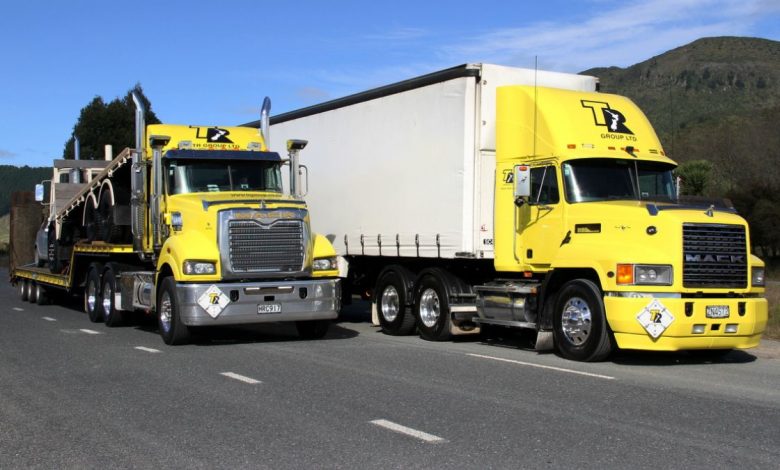
Sharing the road with commercial trucks is stressful. There are federal and state commercial truck rules and regulations that govern the industry, but still, the size and weight of these vehicles make them an inherent risk. Even with rules about how long a truck driver can work and similar restrictions, truck accidents are relatively common. These accidents can stem from a number of factors, from driving fatigue or substance use to mechanical failures. While you can’t completely prevent an accident, the following are some tips and things to keep in mind to stay safe around commercial trucks and 18-wheelers.
Don’t Tailgate a Truck
One of the fundamental rules for safely sharing the road with trucks is that you should never tailgate one. Debris can follow trucks and end up hitting your windshield. Even worse, if you were to get into a rear-end accident with a truck, your windshield is probably going to end up being hit instead of your front bumper. A truck driver is elevated above the roadway and can see things up ahead and react faster than other drivers. With that in mind, a truck driver could spot something and hit their brakes before you realize you need to do the same, and you could run into the back of them. You need to give yourself plenty of space.
Don’t Cut a Truck Off
Another important rule for safely sharing the road with commercial trucks is to avoid cutting one off. A truck is far heavier than a passenger vehicle, which means it takes longer for one to stop. If there’s an 18-wheeler with a full load and it’s going 60 mph, it could take that truck the length of three football fields to come to a stop. A truck can plow through something in its way if they’re trying to stop, and you don’t want that obstacle to be your vehicle. Try to avoid driving right in front of a truck in general if you have an option. Trucks have a front blind spot, so they might not even realize you’re there.
Avoid Driving Directly Next to a Truck
If you drive next to a truck, you’re putting yourself in a situation where you’re at more of a risk of being in a deadly accident. As you drive next to a truck, you could be hit by a lost tire or debris. There’s also a large blind spot on either side of the truck and in the front and back. If you’re lingering in one of these blind spots, there’s the potential that a driver won’t see you if they change lanes, turn, or swerve to avoid something. The rule is that if you can’t see the face of the driver in the side mirror, then they can’t see you.
Keep Out of the Way on Mountain Roads
If you’re coming down a mountain or even a hill, and there’s a truck behind you, get out of the way. It’s hard for trucks to stop regardless, but especially challenging on a mountain. The driver is grappling with downward momentum and possibly hot brakes. A runaway truck is a very real possibility, so stay out of the way. If you’re slower moving than a truck on a mountain road, it might not be possible for it to slow down.
Be Mindful of Blowouts
When you drive on the highway, you likely see a fair amount of the remnants of tires from trucks. Tire blowouts on 18-wheelers are common. Stay far enough away that you won’t be hit if there’s rubber flying off a truck. You also want to make sure that you’re not right next to a truck in case they have to swerve because of a blowout.
Watch for Drifting
If a truck seems to be drifting between lanes, it’s a red flag. The driver could be tired, dozing off, texting, or under the influence of something. It’s also possible that a truck is drifting because the wind is pushing it around. If a truck isn’t fully loaded in the back, it can be especially likely to drift because of how top-heavy these vehicles are.
A truck can even be blown over, so give plenty of space all the time, especially if it’s windy. Finally, if you want to be safe around trucks, use your common sense and be a defensive driver. Give trucks ample space—as much as you reasonably can. Watch what they’re doing and try to anticipate their actions, avoid sudden movements on your own part, and don’t do any abrupt stopping, turning, or lane changes without signaling.
RELATED: How to Shop Safely Online
RELATED: PM Holness Announces 50 New Garbage Trucks En Route to Jamaica
RELATED: JA News: Bad gas issue… 12 New garbage trucks… Local Football injustice [Video]





